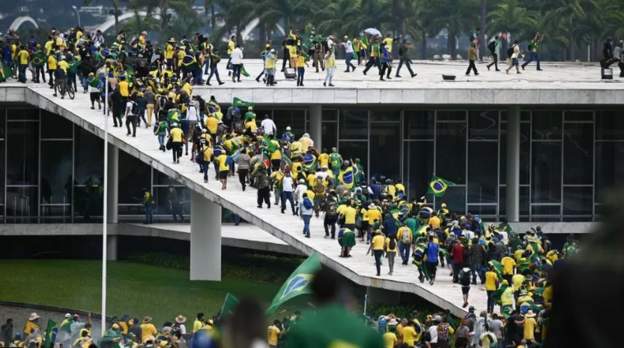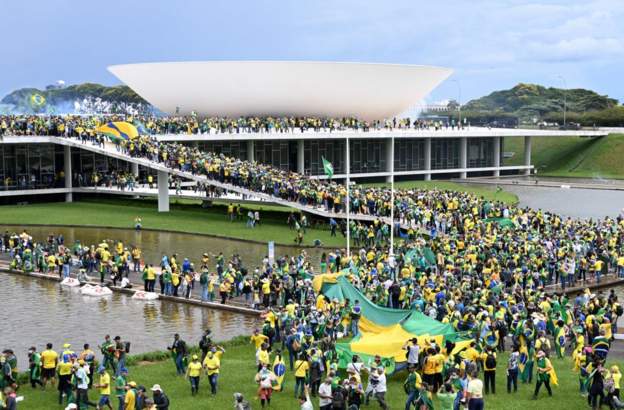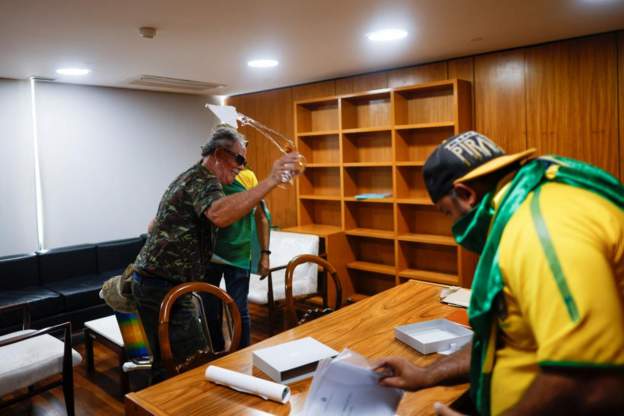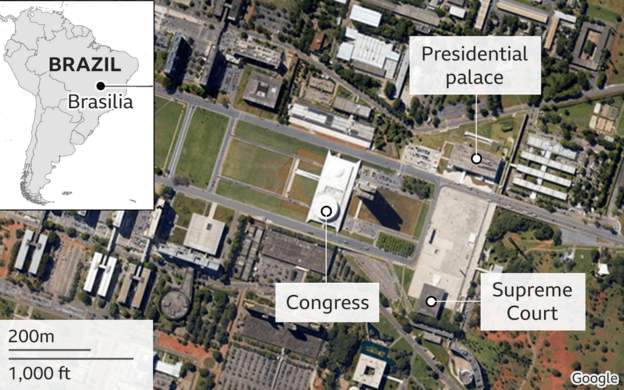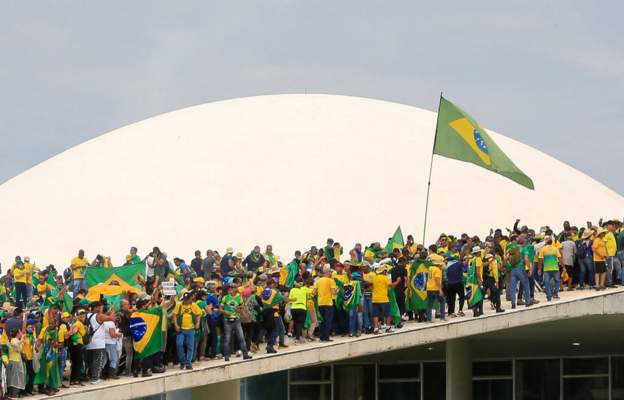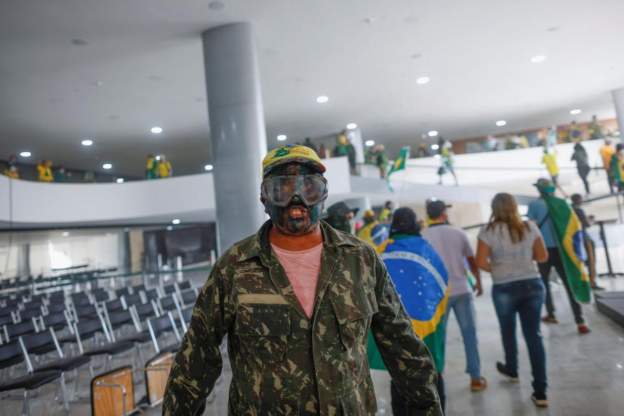Marianna Spring, BBC News Disinformation and social media correspondent: Conspiracies pushing the idea that the election in Brazil was rigged - and that Bolsonaro was the real winner - have been circulating among his supporters online for weeks in the build-up to what happened in Brasilia. It means that the spotlight is once again on social media platforms.
What role did they play? And could they have quelled misinformation online that may have contributed to the protests?
Twitter in particular finds itself the subject of scrutiny. After Elon Musk took over, the company laid off staff including those in Brazil whose role was to tackle misinformation around the election. Twitter and Musk have repeatedly said they are tackling the most harmful content on the site. But it's hard not to draw a comparison with the sotrming of the US Capitol on 6 January two years ago - also driven by misinformation.
Narratives suggesting votes are rigged spread online and build over several months, fanned by influential political figures. They then inspire hardcore supporters to take action based off evidence-free ideas. On the BBC's Americast podcast this week, we discussed the legacy that those Capitol riots in the US have left behind. The conspiracies that played out that day have not just disappeared, they've continued to spiral beyond the US.
Frances Mao, BBC News Reporting from Brasilia: In the hours after rioters temporarily took over Brazil's most important democratic institutions, residents of an affluent Bolsonaro-voting area of Brasilia were uneasy.
"It's a sad, sad day for Brazil. Unfortunately, I'm not surprised at all," said Victor, 28, a cafe kiosk worker. He said he had been expecting some sort of similar action before New Year's Eve, when President Luiz Inácio Lula da Silva was inaugurated.
Outside the famous Our Lady of Fatima church just around the corner, a few people were praying.
One of them told me it was a minority of people who wanted the riots and violence. "But that's not what democracy is about. There will be winners and losers," said Oswald, 50. "Winners will govern the country, losers have to accept, and the country will continue to grow and develop.”
